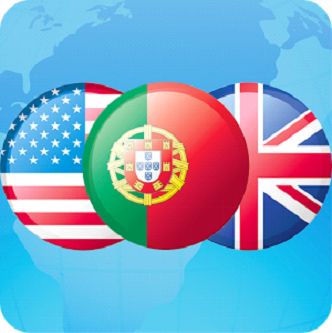Leading Tips for Perfect English to Portuguese Translation Provider
Attaining phenomenal English to Portuguese translation calls for more than mere word-for-word conversion; it requires an understanding of social nuances and etymological ins and outs. Picking certified translators who are both fluent and culturally mindful is paramount - English To Portuguese Translation. What various other essential aspects should be thought about to boost translation top quality additionally?
Understand Cultural Nuances
When translating from English to Portuguese, realizing the social nuances is crucial for creating a precise and powerful text. The Portuguese-speaking globe is diverse, encompassing different regions, each with its unique customs, expressions, and social standards. A translator should be in harmony with these subtleties to ensure that the translation not only shares the desired message yet additionally resonates with the target market.
As an example, colloquial expressions in English may not have straight equivalents in Portuguese. A phrase that functions well in one society could lead to confusion or misinterpretation in one more. Recognizing regional languages and variations, such as those discovered in Brazil and Portugal, is crucial; words may hold various undertones or usages depending on the area.
In addition, cultural context plays a considerable duty in translation. Consideration of historical, social, and political variables can affect language choices and tone. This cultural recognition permits the adaptation of material that lines up with neighborhood worths and expectations, thus improving the performance of communication. Eventually, a detailed understanding of cultural nuances is important for providing translations that are not just linguistically exact yet additionally culturally relevant and engaging.
Select Qualified Translators
Choosing qualified translators is an important action in ensuring the precision and top quality of English to Portuguese translations. A translator's knowledge not only encompasses language effectiveness but additionally a deep understanding of social context, colloquial expressions, and industry-specific terminology. When choosing a translator, focus on those with formal training in translation researches or grammars, in addition to appropriate accreditations that demonstrate their specialist capability.
Experience plays an essential function as well; translators specializing in details areas-- such as legal, medical, or technological-- are a lot more likely to deliver specific translations customized to the market's requirements (English To Portuguese Translation). Additionally, consider their profile and client testimonials to analyze their previous job high quality and reliability
Engage translators that are native Portuguese audio speakers, as they possess an innate understanding of the language's subtleties and regional languages. This experience enhances the translation's credibility and performance.
Usage Contextual References

When converting, it is essential to identify idiomatic expressions and cultural referrals that might not have straight matchings in Portuguese. Certain phrases that resonate in English could require adaptation to share the very same emotional weight or cultural relevance in Portuguese. Employing contextual references can assist translators pick the right terminology and style, consequently boosting the overall clarity and effect of the translation.

Concentrate On Localization
Localization plays a critical duty in the translation procedure from English to Portuguese, as it makes sure that the converted web content is appropriate and culturally suitable to the target audience. English To Portuguese Translation. This process exceeds mere translation; it entails adjusting the material to the cultural, social, and linguistic subtleties certain to Portuguese-speaking areas
Comprehending local expressions, personalizeds, and choices is important. Specific phrases or referrals that reverberate with an English-speaking audience may not have the very same effect on Portuguese audio speakers. It is vital to take into consideration local variants, such as Brazilian Portuguese versus European look at here now Portuguese, as each has distinct vocabulary and stylistic distinctions.
In addition, localization includes format, such as date and time formats, currency, and dimension units, which can vary significantly throughout societies. This interest to information fosters a connection with the target market, enhancing interaction and comprehension.
In addition, employing regional languages and slang can offer credibility, making the content much more relatable. By concentrating on localization in English to Portuguese translation, organizations can efficiently interact their message, construct trust with their audience, and eventually achieve their intended goals.
Testimonial and Edit Extensively
Comprehensive evaluation and modifying are crucial action in the translation procedure, particularly when converting English content into Portuguese. This phase ensures that the equated material not only maintains the initial definition yet also reverberates well with the target audience. Offered the cultural and etymological subtleties, a careful approach to review and editing is vital.
Begin by comparing the initial English message with the Portuguese translation, paying close focus to terminology, tone, and context. It's important to make certain that colloquial expressions and social referrals are properly adapted for the Portuguese audience. Involving a 2nd translator or a native speaker for this testimonial process can offer vital insights and catch mistakes that might have been ignored.
Furthermore, check for grammatical precision and stylistic uniformity throughout the file. Common obstacles such as incorrect cognates or ambiguous expressions must be addressed to stay clear of misinterpretation.
Verdict
Accomplishing outstanding English to Portuguese translation services demands a detailed strategy that includes understanding cultural subtleties, selecting certified translators, using contextual references, prioritizing localization, and carrying out detailed testimonials and edits. Each aspect plays a critical function in ensuring that translations are not only exact but additionally resonate with the target market. By executing these approaches, companies can enhance the performance of their communication and cultivate a deeper connection with Portuguese-speaking target markets.
Achieving remarkable English to Portuguese translation calls for more than plain word-for-word conversion; it demands an understanding of etymological intricacies and cultural subtleties.Picking qualified translators is an important step in making sure the accuracy and high quality of English to Portuguese translations.Detailed review and modifying are essential steps in the translation process, especially when converting English web content right into Portuguese.Begin by comparing the original English text with the Portuguese translation, paying close focus to tone, context, and terminology.Attaining extraordinary English useful source to Portuguese translation services demands a comprehensive method that includes understanding cultural subtleties, choosing certified translators, using contextual referrals, prioritizing localization, and conducting extensive evaluations and edits.